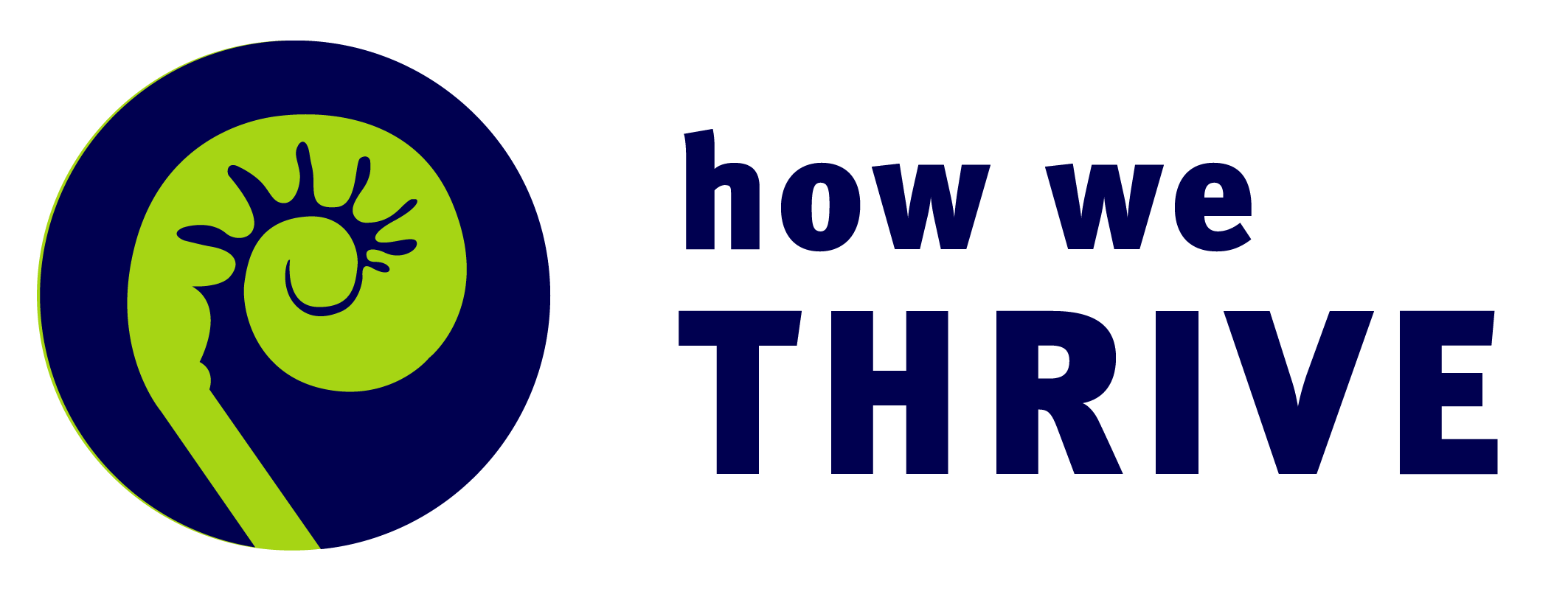Off the rails
by Susan Szpakowski
Buoyed by the energy and success of the 2018 gathering and assuming it would be easier to organize the second time around, a few of us started planning for 2019. A few months in, we invited a diverse group to to help shape the final design. The idea was that we’d download some of the principles we were working with, point to white spaces in the existing design, and ask for suggestions. We booked a three-hour meeting and prepared the agenda and flip-charts.
We never got past the check-in. Instead, the group brought voices into the mix that we hadn’t yet heard—about why some communities had been absent and what they would need to truly feel part of such a gathering. The organizers listened, let go of the agenda and flip charts, and began to walk down a new path, into deeper territory that was both personal and systemic.
For three hours we sat in a circle hearing about the discomfort some folks had felt at THRIVE, why their community hadn’t shown up, and questioning the leadership model, culture and founding assumptions. As the key driver behind the founding of THRIVE, I squirmed in my seat and found it difficult not to take it all personally.
And of course it is personal. When you invest your passion, time and good intentions in a project, it can be devastating to be challenged at such a deep level. I had to erase a milestone or two, along with a chunk of pride, and mostly just listen for three excruciating hours.
These are the times we are in. The push to “accelerate” or “amplify” or “scale” change can be tinged with colonial mindsets. As self-identified (usually white) change-makers, we often think we know what others need, and we assume we know the best way to get there. We just need to move faster, smarter, with better tools and more agility. And then we need to “include” those at the “margins.” I actually felt some relief watching all of that momentum start to unravel.
I also started to think differently about success. I left that meeting reassuring a colleague that it had been a “win” for Thrive. For one thing, those who would usually quietly slip away were willing to show up for this. How generous is that? AND everyone offered to come back in the new year to continue the process. In the closing circle some asked, “Where else is this conversation really happening?” “If not us, then who? If not now, when?” Someone said, “This is the work. This is how we thrive.”
So when I heard the rumour that the design team had taken THRIVE “off the rails,” I thought, YES! Those rails are headed to a known destination, built by others in a past we don’t necessarily want to replicate. We are trying to find our way to a different destination, one that doesn’t yet exist. The way forward is uncertain and messy. It seems our only reliable compass is our humanity—what feels authentic and true, what nourishes and sustains, what creates positive change with rather than for others.
So that first meeting established a slower rhythm of reweaving Thrive'’s foundation and relationships, which moved at the speed of trust. In parallel was the more linear, time-bound process of planning and hosting an event that would take place in June. It was uncomfortable to hold both, and some have suggested we postpone the June event.
At the same time, holding this dilemma seems to be part of the work. The urgency to address issues like poverty, health, food security, failing economies and environmental degradation is real. Climate change and global instability are on everyone’s minds. We do need to connect, illuminate, and amplify positive examples in our region. In parallel, how can we also take the time to deconstruct colonial mindsets and create a different ground for our work? How can we build the kind of relationships that will sustain us and create the foundation for something new that works for everyone?
I think these are exactly the kind of questions we need to bring into Thrive. The June 2019 gathering did indeed happen, as a space where the difficult questions and the “real work” are welcome—in all their messiness, vulnerability, joy, uncertainty and wisdom.

